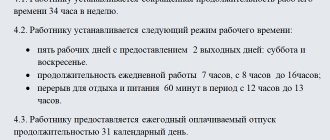Form of marriage contract
In accordance with paragraph 2 of Article 41 of the RF IC, the conclusion of a marriage contract is formalized in writing with mandatory notarial approval. That is, the finished document expresses the true content of the transaction. The essence of the document must be clear and precise. Dates and numbers are written in words. Contact details of the parties and full name. are indicated in full in accordance with Article 45 of the “Fundamentals of Legislation on Notaries”.
The agreement is sealed with the signatures of the spouses. Executing a power of attorney for the signing of an agreement by a third party is permissible only if there is a good reason (clause 3 of Article 160 of the Civil Code).
The contract can be signed via electronic or fax in the manner prescribed by law (clause 2 of Article 160 of the Civil Code). You can have a document approved by both a public notary and a private one. In this case, the notary is obliged to check the contract’s compliance with legal norms, identify the main problems and explain to the spouses the meaning and significance of the transaction.
Failure to comply with the notarial form of the agreement is considered grounds for invalidating the agreement. The document will be considered void, which does not entail any legal consequences. It is important that agreements drawn up in the period from January 1, 1995 to March 1, 1996 on the basis of clause 1 of Article 256 of the Civil Code are recognized as legal even without notarization. At that time, the Civil Code did not require a mandatory notarial form for marriage contracts.
A marriage contract can be fixed-term (with a specific period) or unlimited (without specifying a period). A fixed-term marriage contract terminates upon the date specified in the contract. The property rights of the spouses are then regulated by the general rules of the UK on the legal property regime. An open-ended contract is valid as long as the marriage exists.
The peculiarities of concluding a marriage contract are that during the marriage the agreement can be changed, supplemented, or terminated. Any modification occurs on the basis of the common will of the parties, is drawn up in writing and notarized. Unilateral refusal to fulfill the terms of the concluded agreement without notifying the other party is not permissible, just as one of the parties to the transaction does not have a special advantage.
Essential terms of a marriage contract: what can be included in the text of the contract
Spouses must take into account and reflect all essential conditions when drawing up a marriage contract, otherwise such an agreement will be canceled. Marriage contract: what is it? A marriage contract (agreement) is an agreement between a man and a woman, the purpose of which is the need to resolve issues of distribution of jointly acquired property. Design Features: Designed to provide only property interest; Cannot indicate the procedure for maintaining and raising children; Registered by a notary; The moment the contract comes into force may not coincide with the date of its notarization: if the contract is concluded before marriage, then it acquires legal force from the moment the marriage union is legalized; if the agreement is concluded during the marriage, then it comes into force from the moment it is registered by a notary; The parties to the contract must meet a number of criteria: Have an official marriage union; Have full legal capacity; Express voluntary consent to conclude an agreement; Be personally present during the preparation of the document; A correctly drawn up marriage contract is very difficult to challenge or cancel in court; A marriage contract can be valid until: Dissolution of the marriage; The occurrence of a special disqualifying condition; The death of one of the spouses; One of the parties begins to evade its fulfillment (the second eligible spouse should apply to the court for restoration of the violated right). The content of the marriage contract can reflect the following: The volume of property that will be considered common or sole property; The procedure for the distribution of income of spouses; Rights and obligations of the parties to the agreement; The procedure for incurring expenses related to maintaining a family; Possible change in the initial terms of the contract in the event of circumstances specified as a suspensive or extenuating condition (for example, the birth of a child may change the algorithm for the distribution of common property). Essential terms of a marriage contract The essential terms of a marriage agreement mean its integral parts, the absence of which will not allow a correct interpretation of the legal position expressed in it. The law does not prohibit spouses from drawing up a sample marriage contract on their own, however, in order to avoid problems and subsequent textual changes, you should seek help from a competent employee of the notary’s office, who will: Explain the procedure for drawing up the agreement; Familiarize yourself with the list of documents required for presentation; It will indicate the conditions that may be in the content of the contract and which should not be; Inform about all legal consequences that the contract may entail; Ensure legal literacy and compliance of the document with legal norms; Will keep one sample agreement in its register. The essential conditions without which the contract will not have legal force include the following provisions: Subject of the contract In the context of a marriage contract, the subject can only be understood as property relations; The legislator does not introduce a limiting list on the volume of property that may be specified in the contract; Spouses, at their own discretion, can determine the subject of the marriage contract; In practice, the subject of the agreement includes: Immovable objects; Movable objects subject to registration; Securities; Movable objects not subject to state registrations, but having high value and liquidity; Any assets held in savings or checking accounts; Credit and financial obligations; It is advisable for spouses to clarify whether the subject of the marriage contract includes property that was acquired before marriage or gifted to one of the counter parties. Subjects Subjects of a marriage contract are persons who are in official marital relations; According to the legislation of the Russian Federation, marriage can only be registered between a man and a woman for the purpose of creating a family; The agreement on the subjects must indicate the following data: full name; Date of Birth; Location; Passport data; Contact phone number; A marriage contract will be considered void if: One of the parties has a previously concluded marriage union that has not been dissolved; It is concluded between close relatives; One of the spouses at the time of concluding the said agreement lost legal capacity; The parties to the agreement are the adoptive parent and the adopted child. Form of agreementCan only be in written form; Mandatory certification of the transaction by a notary; Both a public and private notary can certify a document; In exceptional cases, another person has the right to notarize a document: the Head of the expedition; Captain of the ship; Head of the correctional colony; Chief medical doctor institutions; The contract is drawn up in three copies (one sample for the spouses and one copy for the notary); The agreement must be personally signed by each party and certified by the seal and signature of a notary officer. Contents of the contractThe contents of the contract, along with the above points, must also meet the requirements of the law. The content must relate to the property legal relations of the spouses; The content may refer to both actual property and those acquired in the future; The powers and obligations of the parties to the property specified in the content may be limited by the timing or the occurrence of any circumstances; The following conditions cannot be specified in the content of the contract: Concerning the upbringing of joint children (provided for by other agreements); Limiting or infringing on the civil and constitutional rights of one of the spouses; Completely depriving one of the parties of the right to property (for example, a spouse cannot be deprived of her part of property rights if she is unable to give birth to a child); Regulating personal non-property relations of spouses (the agreement cannot indicate the religion that one of the spouses should adopt, the place of work or indicate the preferred form of leisure). The procedure for drawing up a marriage agreement. Preparation of documents; Determination of a competent notary office; Personal appearance; Notifying the notary of the desire to enter into a marriage contract; Explanation by the notary of the rights and obligations of the applicant; Drawing up a contract form; Reading the contract; Familiarization with the contract and its signing in the presence of a notary officer; Signing and sealing by a notary; Issuing one sample contract to each spouse; Placing the third sample in the notary's archive. Required documentsPassport of each party; Title documents for property related to the subject of the agreement; Property valuation (required on an individual basis, in exceptional cases can be determined independently based on average market price analysis); A certificate confirming the marriage bond.
Even more articles in our “Legal Directory of Family Law Lawyer Advice”. Get free legal advice from family lawyers.
Definition of the rights and obligations of spouses in a marriage contract
When determining the rights and obligations of the parties to a marriage contract, as usual, they display the following nuances:
- general provisions on the rights of participants in a transaction;
- the rights of spouses to each other's personal property;
- the procedure for notifying a bank or other creditor about the conclusion of an agreement;
- list of property to be divided during divorce.
The sample may also indicate the conditions for mutual maintenance of spouses or determine the procedure for regulating joint expenses. The contract must also take into account the violation of the terms of one of the parties. It is possible and should determine what kind of liability arises for failure to fulfill the obligations stipulated by the contract.
It is important to consider that a prenuptial agreement should not:
- limit the capacity or rights of the parties;
- exclude the possibility of judicial protection of the legitimate interests of a participant in a transaction;
- regulate non-property issues;
- determine the scope of parental rights;
- limit in any way the disabled spouse from receiving financial support;
- contain rules that infringe on the interests of one of the participants.
The concept of a marriage contract
A marriage contract is drawn up before the official registration of marriage or after it. In the first situation, the contract begins to take effect only after the marriage is registered, and in the second, when it is registered with a notary. The conclusion of a contract is possible only with the consent of both spouses.
Such an agreement allows the following points to be determined:
- Property that will be in the sole or common ownership of the parties.
- Rights and obligations regarding mutual content.
- Methods for dividing income.
- The procedure for distributing expenses for maintaining a family.
The duration of the marriage contract is not limited by anything. It lasts until the marriage is dissolved, the spouse dies, or one party refuses to comply with the terms. In the latter situation, the problem is resolved in court.
Property of spouses in a marriage contract
For the property of spouses, there are legal regimes of separateness and community. Community regimes are regimes in which all property is in common ownership and is subject to division after divorce. In this case, the following are distinguished:
- the concept of limited (private) community - property acquired before marriage is not subject to division;
- the concept of absolute (full) community - all property is considered common, even if it was acquired before marriage.
In separate modes, two options are possible:
- Spouses negotiate in advance the division of all property acquired during marriage according to its ownership. At the same time, documentary evidence is required for any divisible property;
- The separation regime applies only to separate property, for example, registered property. So the one in whose name the registration is made will be considered the sole owner.
For property not specified in the contract, the regime of common joint ownership will apply. This applies to property pledged to a bank or lender. Moreover, according to clause 1 of Article 36 of the RF IC, property received by one of the spouses as a gift, inheritance or through other gratuitous transactions is not considered common. Items for individual use are recognized as personal property, except for luxury items and jewelry (clause 2 of Article 36 of the Family Code).
Real statistics show that almost seventy percent of marriages in Russia break up. This makes us think about the rationality of drawing up a marriage contract, the advantages of which are obvious. This document will eliminate possible problems - it will eliminate quarrels, disputes and mutual hatred in the event of a divorce.







